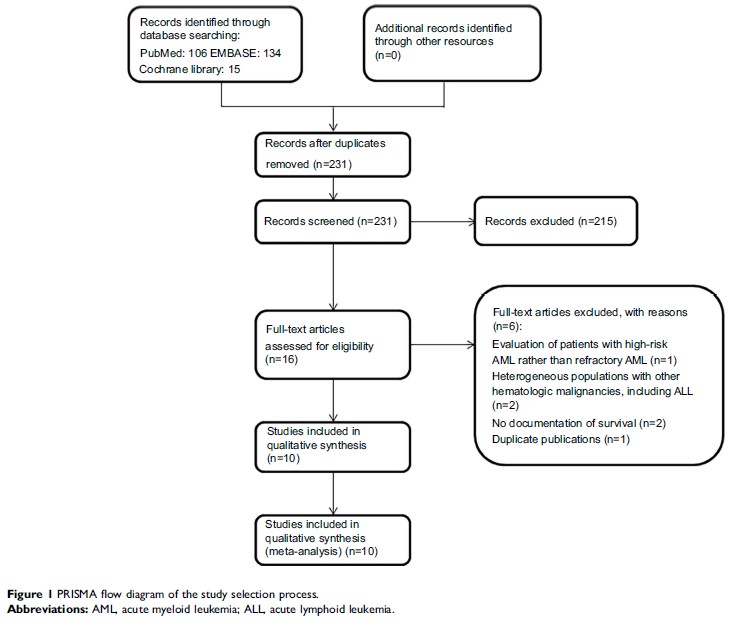9 0 8 0 2
论文已发表
注册即可获取德孚的最新动态
IF 收录期刊
- 2.6 Breast Cancer (Dove Med Press)
- 3.9 Clin Epidemiol
- 3.3 Cancer Manag Res
- 3.9 Infect Drug Resist
- 3.6 Clin Interv Aging
- 4.8 Drug Des Dev Ther
- 2.8 Int J Chronic Obstr
- 8.0 Int J Nanomed
- 2.3 Int J Women's Health
- 3.2 Neuropsych Dis Treat
- 4.0 OncoTargets Ther
- 2.2 Patient Prefer Adher
- 2.8 Ther Clin Risk Manag
- 2.7 J Pain Res
- 3.3 Diabet Metab Synd Ob
- 4.3 Psychol Res Behav Ma
- 3.4 Nat Sci Sleep
- 1.9 Pharmgenomics Pers Med
- 3.5 Risk Manag Healthc Policy
- 4.5 J Inflamm Res
- 2.3 Int J Gen Med
- 4.1 J Hepatocell Carcinoma
- 3.2 J Asthma Allergy
- 2.3 Clin Cosmet Investig Dermatol
- 3.3 J Multidiscip Healthc

克拉屈滨治疗急性髓性白血病的疗效和安全性: 荟萃分析
Authors Zhou A, Han Q, Song H, Zi J, Ma J, Ge Z
Received 3 March 2019
Accepted for publication 26 April 2019
Published 29 May 2019 Volume 2019:13 Pages 1867—1878
DOI https://doi.org/10.2147/DDDT.S207425
Checked for plagiarism Yes
Review by Single-blind
Peer reviewers approved by Dr Melinda Thomas
Peer reviewer comments 2
Editor who approved publication: Dr Anastasios Lymperopoulos
Purpose: To investigate the overall efficacy and toxicity of cladribine and cladribine-based chemotherapy in the treatment of patients with refractory acute myeloid leukemia (AML) based on meta-analysis.
Methods: PubMed, EMBASE database, and the Cochrane Library were searched for relevant studies. Eligible studies were clinical trials of refractory AML assigned to cladribine with data on efficacy including complete remission (CR) rate, overall response rate (ORR) and overall survival. Toxicity was evaluated based on the early death rate and the incidence of grade 3 and 4 adverse events (AEs).
Results: A total of 10 clinical trials including 422 refractory AML patients were analyzed. The overall CR rate was 42.2% (95% CI: 31.0–54.3%). And the ORR of seven trials including 235 patients was 49.7% (95% CI: 33.5–66.0%). The overall early death rate of 260 patients enrolled in five trials was 6.8% (95% CI: 4.3–10.6%). Thrombocytopenia, anemia, neutropenia, and infection were the most common grade 3 and 4 AEs.
Conclusion: Cladribine is effective for refractory AML, and its efficacy can be increased with the combination of cladribine, cytarabine, and granulocyte-colony stimulating factor regimen.
Keywords: cladribine, acute myeloid leukemia, refractory AML, meta-analysis
